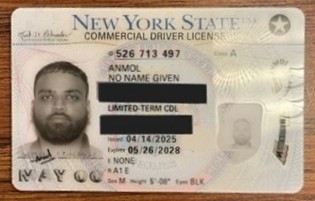The Supremacy Clause
If the Framers of the U.S. Constitution in the constitutional convention, State ratifying conventions and the people of the several states had thought that the above question answered in the affirmative would abrogate their state laws, including their constitutions, the U.S. Constitution would not have been ratified.
This question is brought to the forefront of public debate over the health care bill that has now become Federal law (supposedly) and is therefore the supreme law of the land. The people of the several states and their State governments must yield to it and cannot pass any law to nullify it. There are many Americans today including judges, politicians, lawyers and law professors, who hold to that false concept of American law and American history.
This false concept of our constitutional republic would replace "Federalism" with a tyrannical federal government. Federalism is the constitutional division of powers between the national and state governments. Both are the supreme law of the land within their jurisdiction.
James Madison, "the father of the Constitution," explained it this way in Federalist No. 45: "The powers delegated to the federal government are few and defined. Those which are to remain in the state governments are numerous and indefinite. The former will be exercised principally on external objects, [such] as war, peace, negotiation, and foreign commerce. The powers reserved to the several states will extend to all the objects which, in the ordinary course of affairs, concern the lives, liberties, and properties of the people." Health care is a reserved power of the several states as it affects our lives, our liberties and our property.
Nullification is a reserved power of the several states to nullify all Federal laws that are not in pursuant to the U.S. Constitution because those federal laws are null and void. Nullification is a constitutional act as a sovereign State under the supremacy clause. State governments can simply ignore the law without going to federal court to ask permission to litigate an unalienable right possessed by the people of the several states.
Since governments tend to overstep the bounds of their authority, the Framers of the U.S. Constitution knew it would be difficult to maintain a balanced federalism. In fact, that was one of the central issues raised by the state ratifying conventions as they met to decide whether to approve the new Constitution.
"How can it be claimed that Article 6 can deprive the States of their powers? State powers are either secured by the Constitution or they are not. If secured, in their sphere they are supreme under the 10th Amendment; if not secured therein, they remain the original powers of Sovereign States. Are State powers less protected under the Constitution than those granted to Congress, the Judiciary, and the President?" Judge Henry St. George Tucker, The Treaty Making Power Under the Constitution of the United States, section 9 and 10, The North American Review of April 1914.
Did Congress have an enumerated power of subject matter jurisdiction under Article One Section Eight to enact health care legislation? Did the President (I use that term very loosely in describing the current person occupying the presidential office by hook or by crook) have the jurisdiction to sign the legislation into law? Do federal courts have constitutional subject matter jurisdiction to hear a challenge by any state concerning the federal health care law? Since the health care law is not an enumerated power, it is not constitutional. The President did not have any constitutional authority to sign the legislation; therefore, it is not a Case arising under this constitution and the federal court has no authority to hear and adjudicate the health care law, yea or nay. An unconstitutional act is not a law, it confers no rights, it imposes no duties, it affords no protection, it creates no office; it is, in legal contemplation, as inoperative as though it had never been passed. Norton v. Shelby County, 118 U.S. 425 (1886) The legal encyclopedia American Jurisprudence says the following in regard to constitutionality: The general rule is that an unconstitutional statute, though having the form and the name of law, is in reality no law, but is wholly void and ineffective for any purpose since unconstitutionality dates from the time of its enactment and not merely from the date of the decision so branding it; an unconstitutional law, in legal contemplation, is as inoperative as if it had never been passed ... An unconstitutional law is void. (16 Am. Jur. 2d, Sec. 178)
If we as Americans are going to prevail as a nation of constitutional laws that originated out of our Anglo Saxon race for our posterity, and ourselves, we must defy the tyrannical power of the federal government. The health care battle is a good beginning to return to Federalism.










Latest Commentary
Thursday 30th of October 2025
Thursday 30th of October 2025
Thursday 30th of October 2025
Thursday 30th of October 2025
Thursday 30th of October 2025
Thursday 30th of October 2025
Thursday 30th of October 2025
Thursday 30th of October 2025
Thursday 30th of October 2025